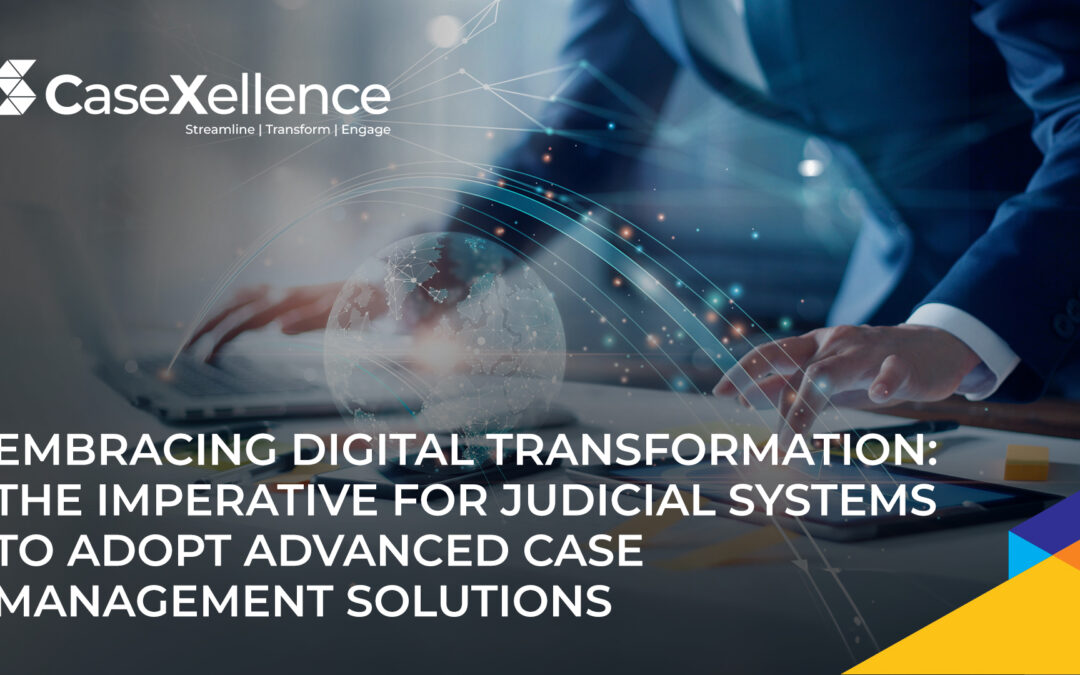In the realm of criminal justice and court administration, the significance of modern case management platforms cannot be overstated. These platforms represent a leap forward in efficiency and effectiveness, serving as crucial tools for courts and prosecutors alike. Yet, the transition to these advanced systems has been slow, with many judicial entities still relying on outdated case management technologies. This reliance leads to inefficiencies, delays in justice delivery, and unnecessary expenditures.
Table of Contents
Legacy Systems: Obstacles to Judicial Efficiency
Within the confines of courtrooms and the daily operations of prosecutors, the limitations imposed by legacy case management systems, anchored in outdated technologies, become glaringly evident. These systems significantly hamper our efforts towards achieving a modern, efficient judiciary. The American Bar Association’s “23 Legal Tech Insights for 2023” report highlights a pivotal shift towards technologies that are not only more accessible but also more adaptable, such as low-code/no-code platforms. These innovative platforms enable legal practitioners, including prosecutors and court staff, to create and modify applications with minimal IT expertise, exemplifying a move towards autonomy and flexibility in judicial processes.
CaseXellence by Speridian stands out as a prime example of such transformative technology, offering features that are customizable, scalable, and seamlessly integrated into our current systems. This significantly diminishes the reliance on extensive IT support and moves us away from the constraints of older, more rigid systems. Adopting these user-friendly and efficient technologies is crucial for enhancing the judiciary’s capability to deliver justice effectively and equitably. Efficiency in case management directly influences the administration of justice, highlighting the necessity for courts and prosecutors to embrace these modern solutions.
Rising IT Maintenance Costs and the Evolution of Legal Technology
The economic uncertainties and the impact of the pandemic have accelerated technology adoption within the judicial sector, as detailed in Nicole Black’s article in the ABA Journal. This shift highlights a growing recognition of the benefits of modern tech solutions over outdated systems. Platforms like CaseXellence, with their advanced features and intuitive design, automate routine tasks, minimize errors, and speed up judicial processes. This not only conserves resources but also allows courts and prosecutors to focus on the core aspects of justice delivery. The transition to more efficient and cost-effective technological solutions is imperative in an evolving legal landscape, where reducing the overhead of IT maintenance and embracing modern systems can significantly enhance judicial operations.
The Advantages of Cloud-Based Systems
The ABA’s insights also reveal a significant move from on-premises to cloud-based technologies. Cloud-native solutions offer scalability, flexibility, and reduced infrastructure dependency, which are invaluable in a dynamic judicial environment. The contrast between traditional on-premises and modern cloud-based systems is stark, with the latter offering adaptability and user-friendly features that are increasingly recognized as necessary by legal and judicial professionals. CaseXellence leverages the cloud’s potential to provide a secure, efficient, and accessible case management platform, minimizing reliance on outdated infrastructure and unnecessary costs.
Conclusion: A Call for Technological Advancement in the Judiciary
The judicial sector stands at a pivotal juncture, with the choice of case management technology having far-reaching implications for efficiency, cost management, and the quality of justice. The shift towards more intuitive, efficient tech solutions is not merely about staying current; it represents a strategic move towards improving productivity, reducing costs, and harnessing the transformative power of AI. The time for courts and prosecutors to move away from legacy systems to modern, flexible alternatives is now, setting the stage for digital transformation.

About The Author
Steve Cercone served as an American law enforcement officer for almost 30 years, and retired as a chief of police in California in 2010. Steve is originally from Boston and is a graduate of the FBI National Academy in Quantico, Virginia. After his police career, Steve has worked for many large corporations, serving the law enforcement technology and corporate investigations world. Steve serves on the Corporate Council of the Citizens Crime Commission of New York City and is the founder of the public safety consulting company, Safe Cities Global.




